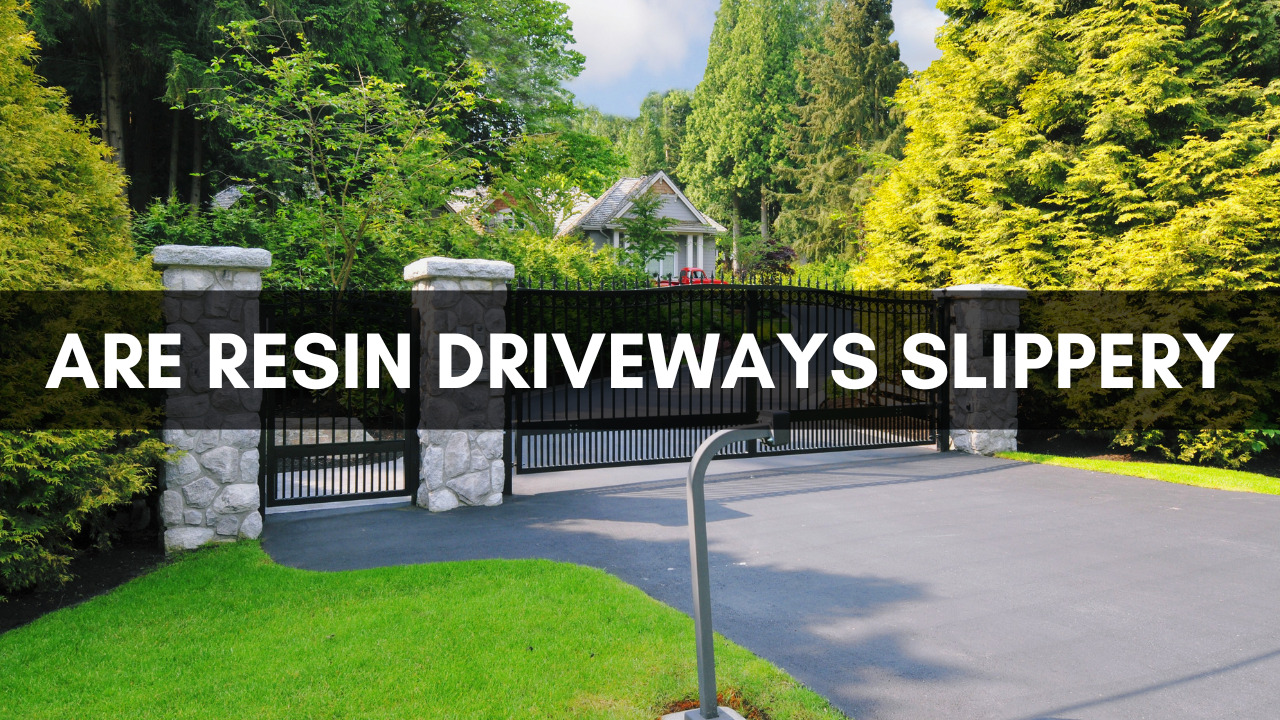While driving, you come across several types of roadways. These are all frequently unavoidable. Your own driveway, though, is one surface that shouldn’t be slick when you’re driving on it.
Slippery surfaces enhance the likelihood of accidents occurring. Making your driveways slip-resistant is crucial since your home should be the last area where accidents occur and the safest place for your family.
Surfaces made of resin are thought to be anti-slip. Before the completed surface is entirely dried, a crushed glass of various fine aggregates is frequently poured over it to increase these anti-slip qualities and give the surface a sandpaper-like grip.
Table of Contents
Resin Driveways Are The Best For Cold Areas
Since a resin driveway’s surface is porous, water from precipitation like snow and sleet will seep through and find its way to the soil below, preventing stagnant water from building up and making the surface slippery.
Resin provides anti-slip capabilities regardless of the weather, and in winter, they are more important than ever since they provide grip on the foot and contact with the floor. In contrast to many other road surfaces, resin driveways require little care and, when done properly by experts, deter the growth of moss and weeds.
If you take good care of your resin driveway, you may anticipate it lasting well over 25 years in excellent shape and remaining unaffected by even the worst winters. In contrast to other driveway options, a resin driveway may still project color and design into your yard, even on the darkest and gloomiest winter days.
Although it won’t make your driveway any safer than other driveway surfaces, there is an added benefit of a resin driveway that you may anticipate.
Ways To Make Resin Driveway Non-Slippery
Use Resin Bound Gravel
The finest alternative for your driveway’s traction is resin-bound gravel. Compared to other surfaces, such as tiles or bricks, which can be highly slippery, especially when wet, it has a roughened surface, offering a better grip.
Because of its surface properties, it offers excellent traction to both vehicles and pedestrians. In addition to making your driveway less likely to slip, it also has a really attractive appearance. The appearance of your driveway need not be compromised for it to be slip-resistant, so this is good news.
Apply A Coat Of Grit
Applying concrete sealer and polymer grit is another choice to consider while making your driveway non-slip. Using a squeegee, you spread the sealer evenly after applying it to the surface. It would help if you next used a broom to give the sealer some texture before it dries.
Although this kind of slip-resistance treatment works well, it needs to be reapplied yearly, especially in places with heavy traffic.
Run Broom On Wet Driveway
People have been using brooms to make concrete less slippery for as long as there has been concrete. For many years, broom finishes have offered a surface with high traction on concrete driveways and walks.
Running the broom continuously from one side to the other across the wet concrete surface is the proper technique. Moving the broom in different directions may even incorporate a design element.
The only problem with utilizing concrete for your driveway is its impermeable nature, even though this solution has, over the years, shown to be very effective.
Your driveway should be a secure and safe road that you and your entire family can utilize in addition to being a beautiful feature of your home. For this reason, it’s crucial to make sure it’s non-slip.
Are Resin Driveways Better Consideration?
Due to their installation with a smooth finish and no stray chippings, resin driveways give you an anti-slip surface. The ties between the stones might dissolve with time, resulting in loose stones, even though tarmac is a durable surface that can bear high pressure.
If you want to invest wisely in the future of your house or driveway, resin paving is the way to go. Resin pavement may last more than 25 years, making it durable and cost-effective.
What Are The Drawbacks Of Resin Driveways?
Surfaces made of resin are thought to be anti-slip. Before the completed surface is entirely dried, a crushed glass of various fine aggregates is frequently poured over it to increase these anti-slip qualities and give the surface a sandpaper-like grip.
Driveways and surfaces made of resin aren’t the ideal options for places that frequently see a lot of foot activity. Although relatively tough and resilient, this surface course can crack over time due to wear and tear. This cracking may eventually result in more extensive harm.
Conclusion
It is much simpler to maintain a resin-bound surface than a block-paved one. Weeds can grow in between the slabs of block paving, and they can fade. Additionally, they require periodic pressure washing to maintain their inherent brilliance.
Driveways made of resin are renowned for being strong and long-lasting. It can last up to 25 years if installed and maintained correctly. A resin-bound driveway needs little upkeep. In general, driveways with resin-bound paving are less expensive than block paving.
There are, of course, many things to take into account, such as the size of the space, the quality of the ground you are lying on, and the labour required. They would mix straight aggregate and resin without using anti-slip sand or glass grit, resulting in a very slippery surface when wet.
You can add fine glass grit to the surface after installation while the resin is drying to provide more grip in areas that need it.





